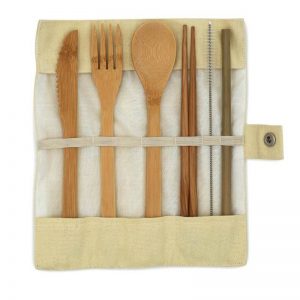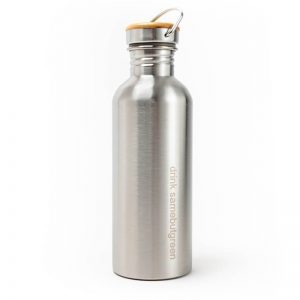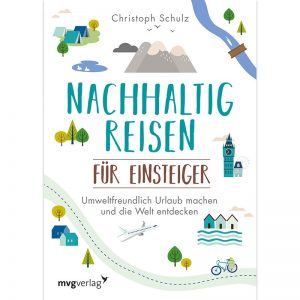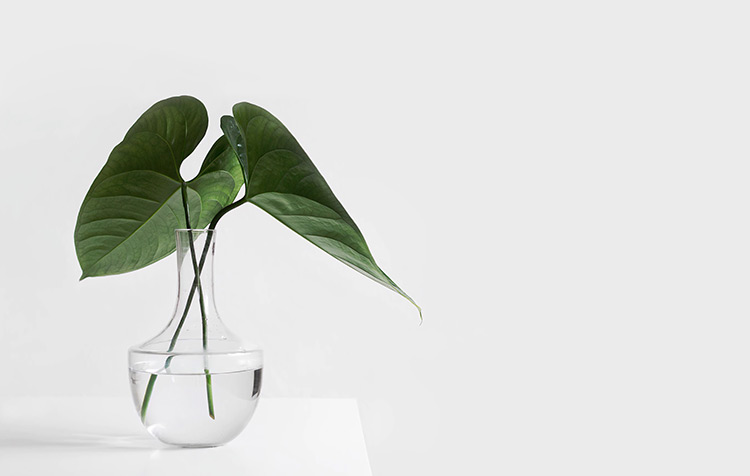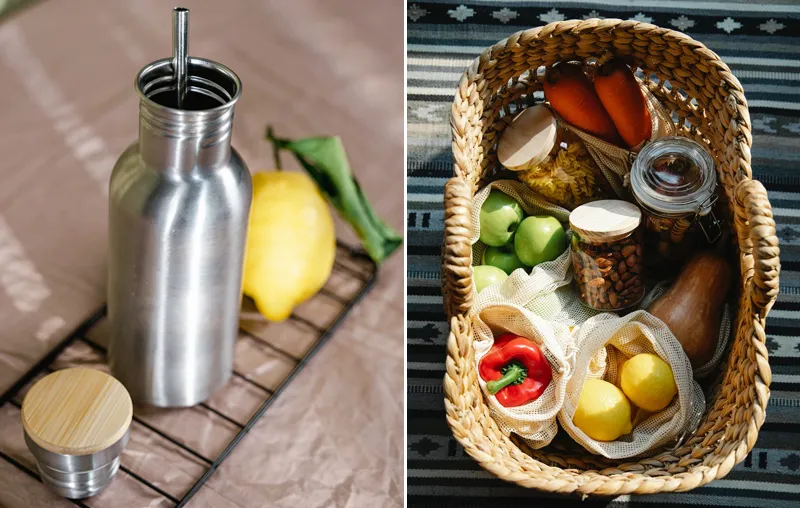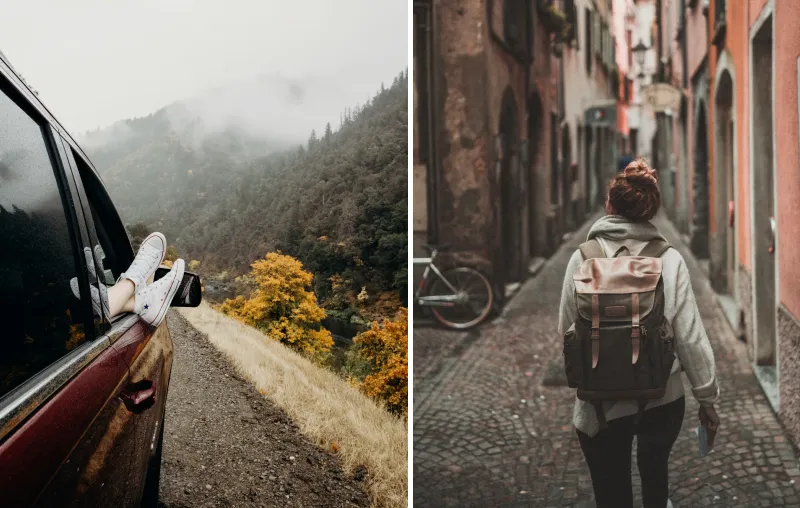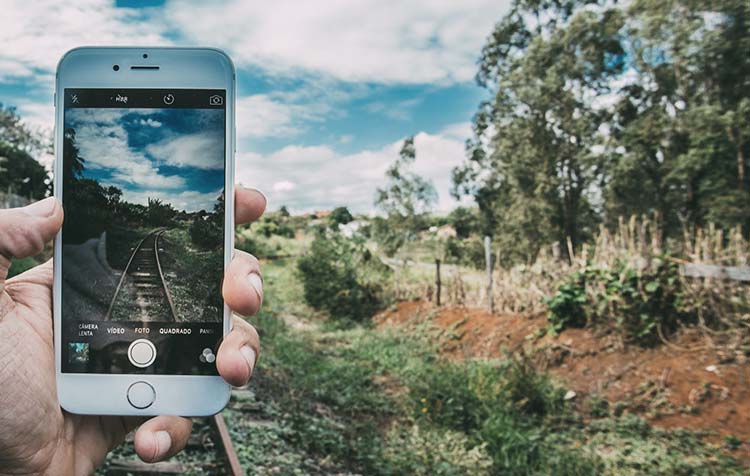You want to stop coral dieback and do your part to protect the reefs? Then you've come to the right place! Anyone who has ever had the pleasure of diving in a coral reef and observing clownfish, turtles or moray eels in their natural habitat is likely to feel a special motivation to preserve the most species-rich habitat in the underwater world.
Corals are even more than "just" food, protection and a home for countless animal and plant species - they are breakwaters off the coast and the most important source of income for countless people in the tourism industry. The livelihoods of many fishermen also depend on them.
In this article I would like to give you some very important tips that you can use every day - and almost automatically - to save corals and prevent them from bleaching and dying. Let's go!
- Live more climate friendly
- Do not buy coral souvenirs
- Avoid plastic waste
- Travel more environmentally aware
- Eat a plant based diet
- Protect yourself naturally from UV rays
- Dive and snorkel responsibly
- Support environmental and animal welfare organizations
- Participate in Beach CleanUps
- Be a role model for others
1. Live more climate friendly
The Climate Change and the Rising sea temperature are the main cause of coral bleaching and cnidarian retreat. Accordingly, you can protect the corals by learning, to live more climate friendly.
This sounds more complicated than it actually is. You can find effective levers above all in the following areas Mobility, nutrition, finance, energy and consumption before.
Ride a bike more often, as well as by bus and train, Eat less meat or ideally purely plant-based, open an account with an ethical bank, charge your smartphone with green electricity from renewable sources (change here now in 5 minutes*) and only buy the things you really (seriously!) need. There are countless possibilities!
2. Do not buy coral souvenirs
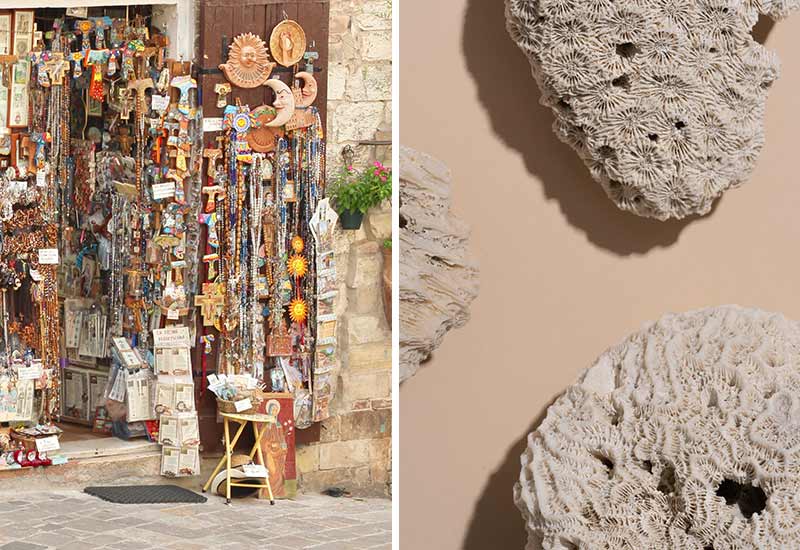
In tourist regions, you will often come across people selling coral souvenirs. If you want to protect the colorful reefs and their colony-forming cnidarians, you should of course give them a wide berth and instead to sustainable souvenirs look around.
In the end, it should really be something special that suits the person receiving the gift. A gift is not always really necessary - it often disappears into the notorious drawer of odds and ends that everyone is probably familiar with. For example, I would love a personal postcard rich. 😉
3. Avoid plastic waste
Plastic waste in nature is one of the greatest Environmental problems of our time - especially since the plastic is not biodegradable. Plastic damages corals through friction, infects them with bacteria and deprives them of light.1 Added to this is the Microplastics in the sea, which settles on the coral stalks.
If you want to stop coral death, you should therefore live as plastic- and waste-free as possible and tiny microplastic components from clothing and cosmetics. Because plastic comes not only directly through Litteringbut also indirectly through our runoff into the oceans. Useful helpers are, for example, reusable fruit and vegetable nets, as well as the App CodeCheck.
Here are some suitable further articlesthat should help you:
4. Travel more environmentally aware
The Mass Tourismincluding the Cruises, the Fish feedings and the great Diving and snorkeling tripsis also one of the causes of coral mortality.
Journey therefore deliberately more sustainable and more climate-friendly! Discover destinations near you, plan your vacation by train, get involved with foreign cultures, don't leave trash in public places and protect the environment at all times. Remember: you represent your home country in a foreign country - and you are only a guest there. A more conscious travel experience will ultimately protect the corals!
5. eat a plant-based diet

The Factory Farming, contributes significantly to climate change, as well as to the pollution of air, soil and water - in addition to the cruelty to animals. Last but not least, "modern" fishing methods, such as the Dynamite or trawl fishing, as well as the Overfishing of the seas in general, contribute to coral mortality.
A purely plant-based diet saves the resource-intensive "detour animal" and promotes the conservation of countless animal and plant species. Fortunately, the Switch from meat eater to vegan is now easier than ever, as the internet is full of delicious recipes and supermarkets are stocked with more than equivalent substitutes. The latter are particularly recommended for people who the change is difficult.
Here, too, I have some further articles from the blog for you:
6. Protect yourself naturally from UV rays
In sunscreens and some other cosmetic products, coral-damaging pollutants are lying dormant, such as the chemical compound Oxybenzonewhich is added to some sun creams as a protective filter against UVB and UVA rays.
Even substances such as Triclosan or Phenoxyethanol - and a whole range of other ingredients - are questionable in this respect and act like poison for the corals.2
Therefore prefer natural sunblocks and natural cosmetics (e.g. this one from the Avocadostore*) or make your own sunscreen.
7. Dive and snorkel responsibly
Of course, the best coral protection, just leave the little cnidarians in peace. But of course we don't have to do without their unique charisma and tranquillity altogether.
But the important thing is: when you dive or snorkel, treat the corals responsibly and with respect for the environment. Do not break anything off, do not touch anything and keep a sufficient distance. Pass these rules on to others and report violations to protect the corals.
8. Support environmental and animal welfare organizations
Fortunately, there are an incredible number of incredibly great organizations that are work for the preservation of corals. Coral conservation organizations such as the Coral Reef Alliance or the International Coral Reef Initiative (ICRI) on very direct - and environmental - and animal welfare organizations like, Ocean Care, the WWF or the Marine Conservation Foundation in a direct or indirect manner.
Finally For example, shark conservation also promotes the preservation of coralas sharks feed on smaller predatory fish, which would otherwise minimize the herbivores in the reef and thus increase the risk of young corals becoming overgrown with algae.3
By actively or financially supporting such organizations and institutions, you are also creating a valuable impact for coral protection.
9. Take part in Beach CleanUps
As already described Plastic waste in the environment a massive threat to all life on earth - including coral. We may be able to avoid the trash in the future, but the Existing plastic on the beaches and in the water remains basically until we collect it.
If you want to stop the coral die-off, participating in worldwide CleanUps so a great measure! Get disposable straws, crushed cups and plastic bottles from natureto protect the underwater world.
Here are some further articleswhich I would like to recommend to you:
10. Be a role model for others
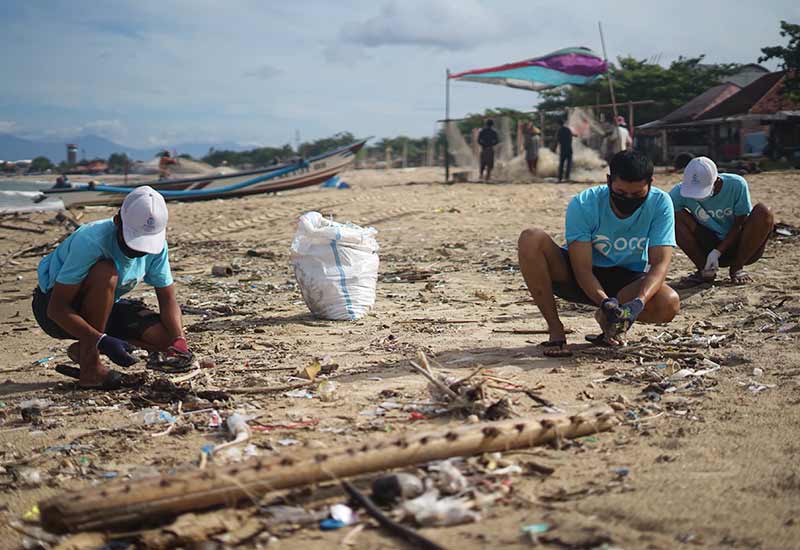
Making a change in your own life to protect corals is already a great achievement. But the difference you make is even more substantialif you also want to make other people aware of the Nature conservation in everyday life inspire. If you want to effectively slow down coral bleaching, you ultimately have to lead the way yourself and not just swim along. 🙂
So motivate other divers and snorkelers not to touch the corals and break them off. Show the people around you why it's worth itYou have to collect garbage from nature, eat a vegan diet, avoid plastic waste and stop buying coral souvenirs. After all, everyone has an interest in a clean, intact environment and accordingly you will also (mostly) meet open ears.
Stop coral dieback - Everyone can do something!
Just because the Great Barrier Reef, the Reed Bank and the coral reef on the Red Sea are far away from us, that doesn't mean they're far away. No reason to stand idly byhow these wonderful underwater landscapes are perishing. A careless lifestyle and indifferent attitude actually support coral death.
"Plans to protect air and water, wilderness and nature are in fact plans to protect man."
Stewart Udall (more at Sea quotes)
Every person, every day, can be a "coral-friendly" and sustainable lifestyle also help to protect coral reefs and reverse bleaching. Today I have shown you what this can look like in everyday life.
I very much hope that this article will help you to live a more coral-friendly life. Do you have any questions, tips or suggestions? Then I look forward to your comment.
Stay animal and nature friendly,

PS: In addition to coral reefs, tropical forests are among the most species-rich habitats on the planet. As you can see from the Protect rainforest in everyday life you can now learn in the linked article. Have fun with the implementation!
References
- Joleah B. Lamb; Bette L. Willis, Evan A. Fiorenza; et al: Plastic waste associated with disease on coral reefs, available at https://www.science.org/doi/10.1126/science.aar3320. [09.01.2024]. ↩︎
- Robert Züblin: Sunscreen ban - Palau bans coral-damaging sunscreens (01.01.2020), available at https://www.tal-mi-or.de/news/sonnencreme-verbot-palau-verbietet-korallenschaedliche-sonnenschutzmittel. [09.01.2024]. ↩︎
- Schweizer Agrarmedien AG: Sharks keep coral reefs healthy (as at: 25.07.2017), available at https://www.tierwelt.ch/news/wildtiere/haie-halten-korallenriffe-gesund. [09.01.2024]. ↩︎

